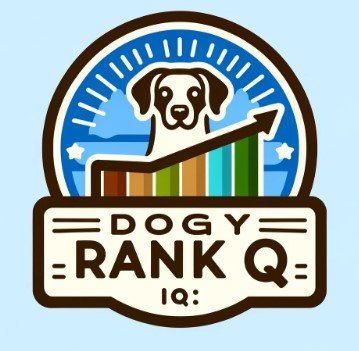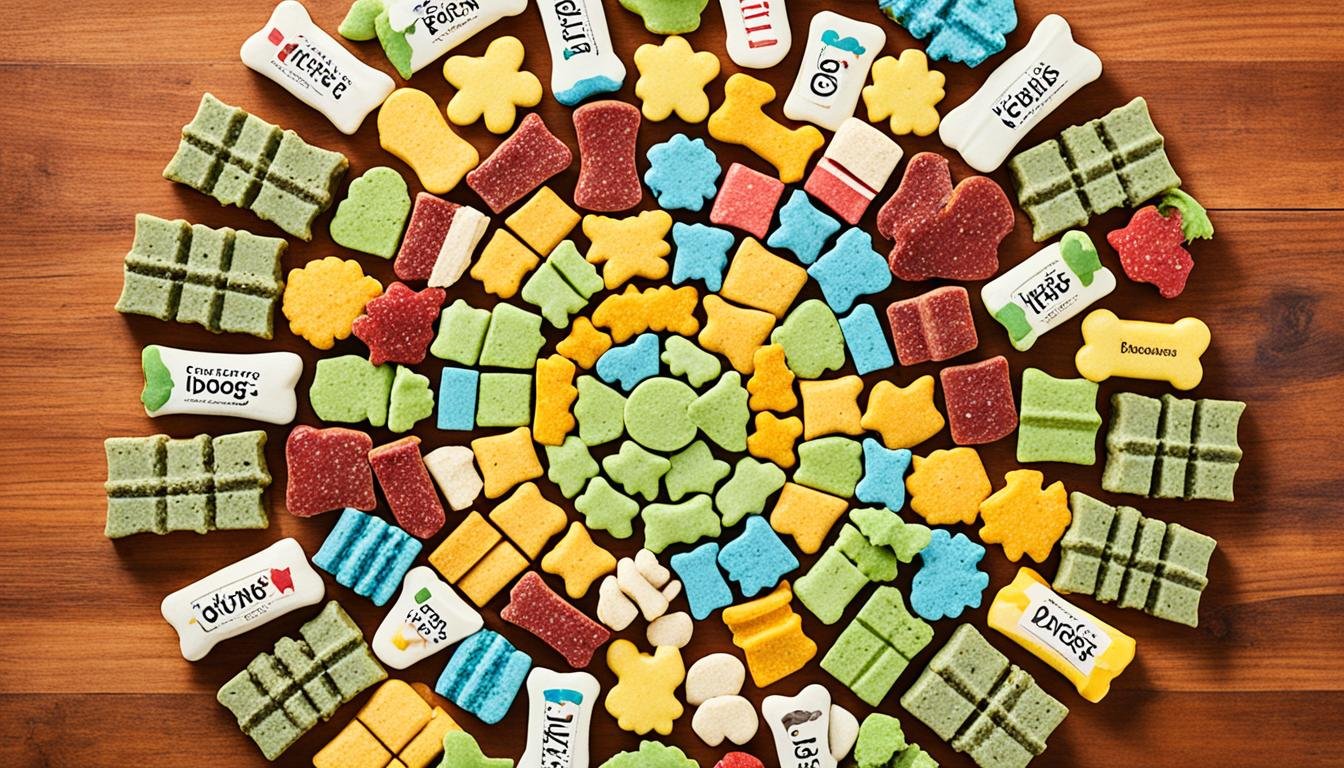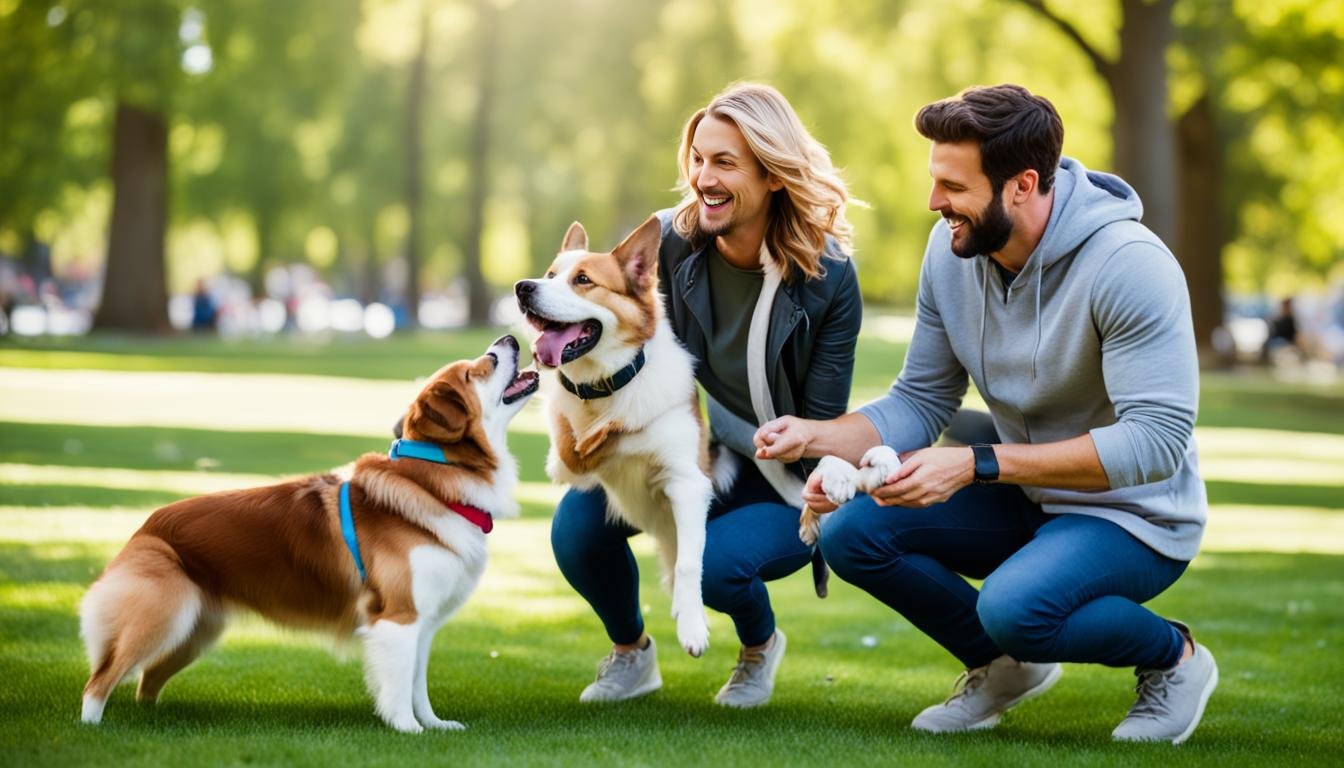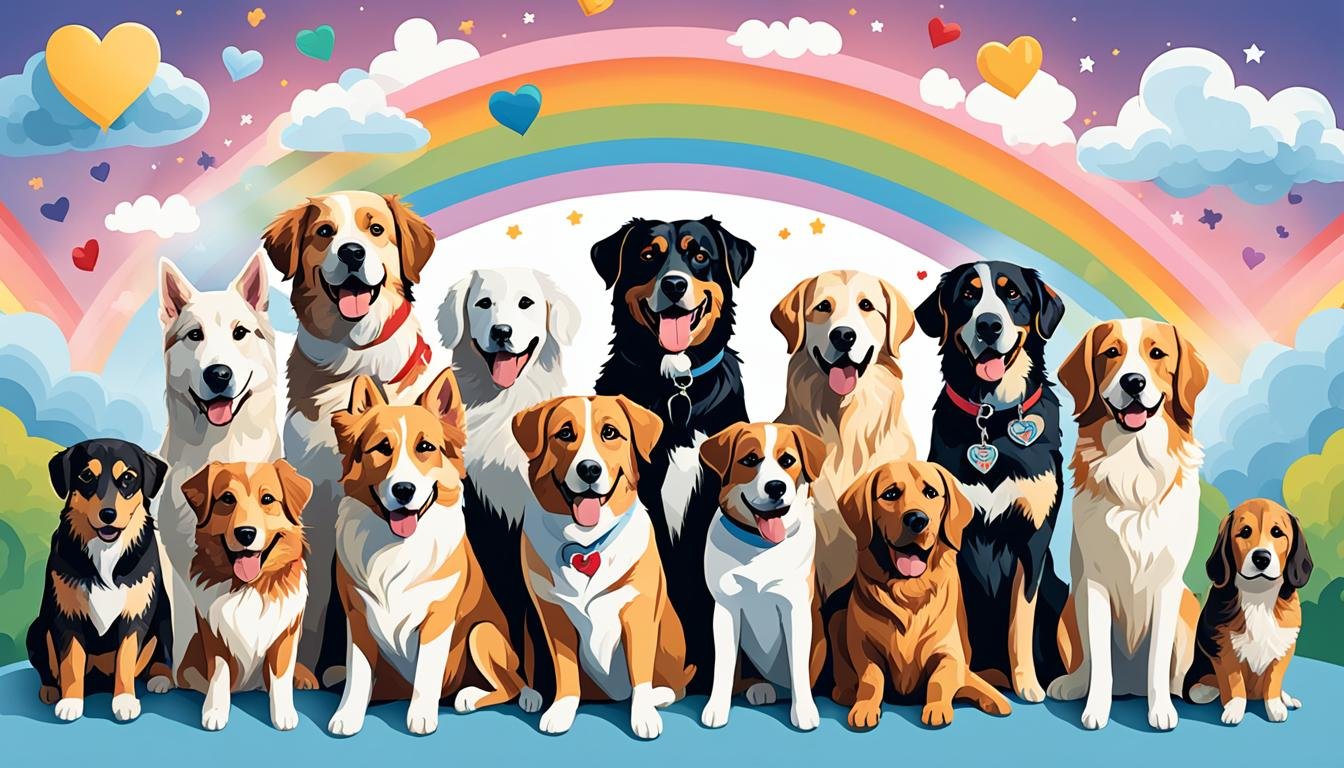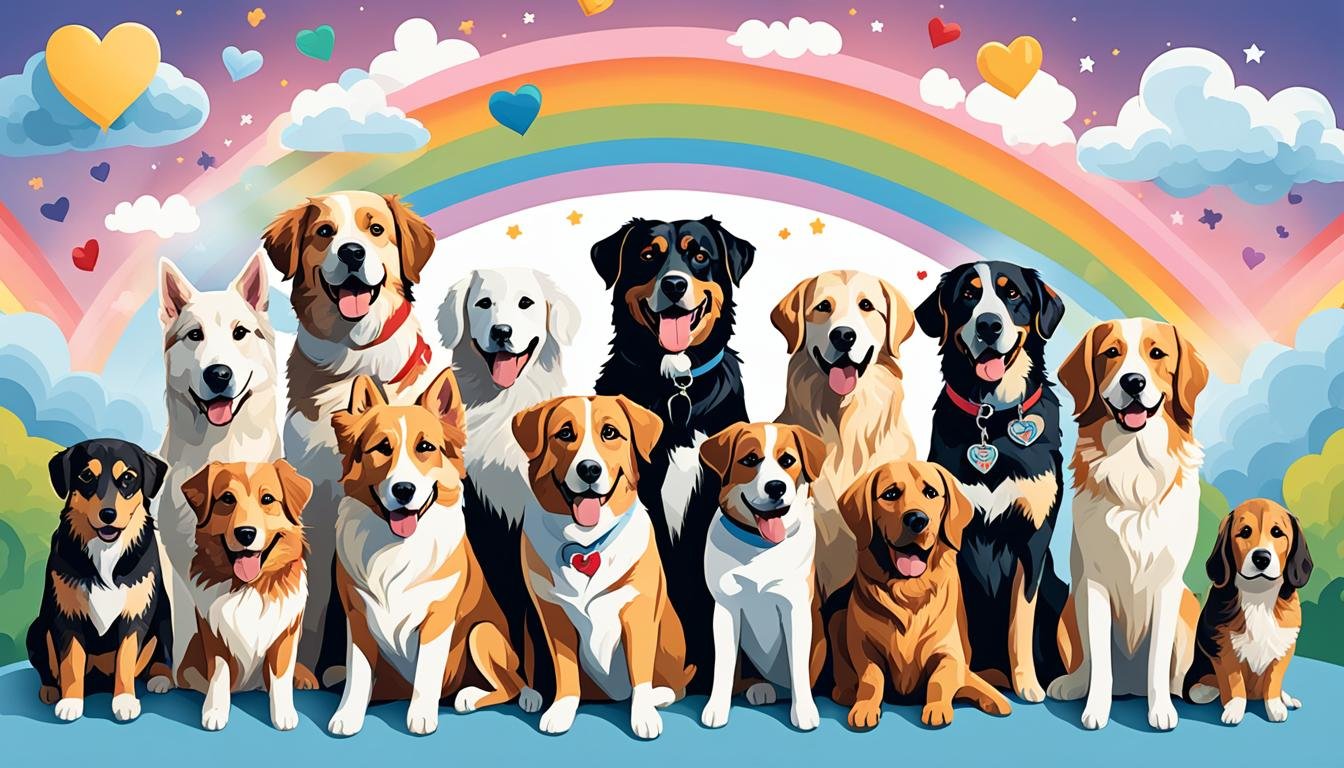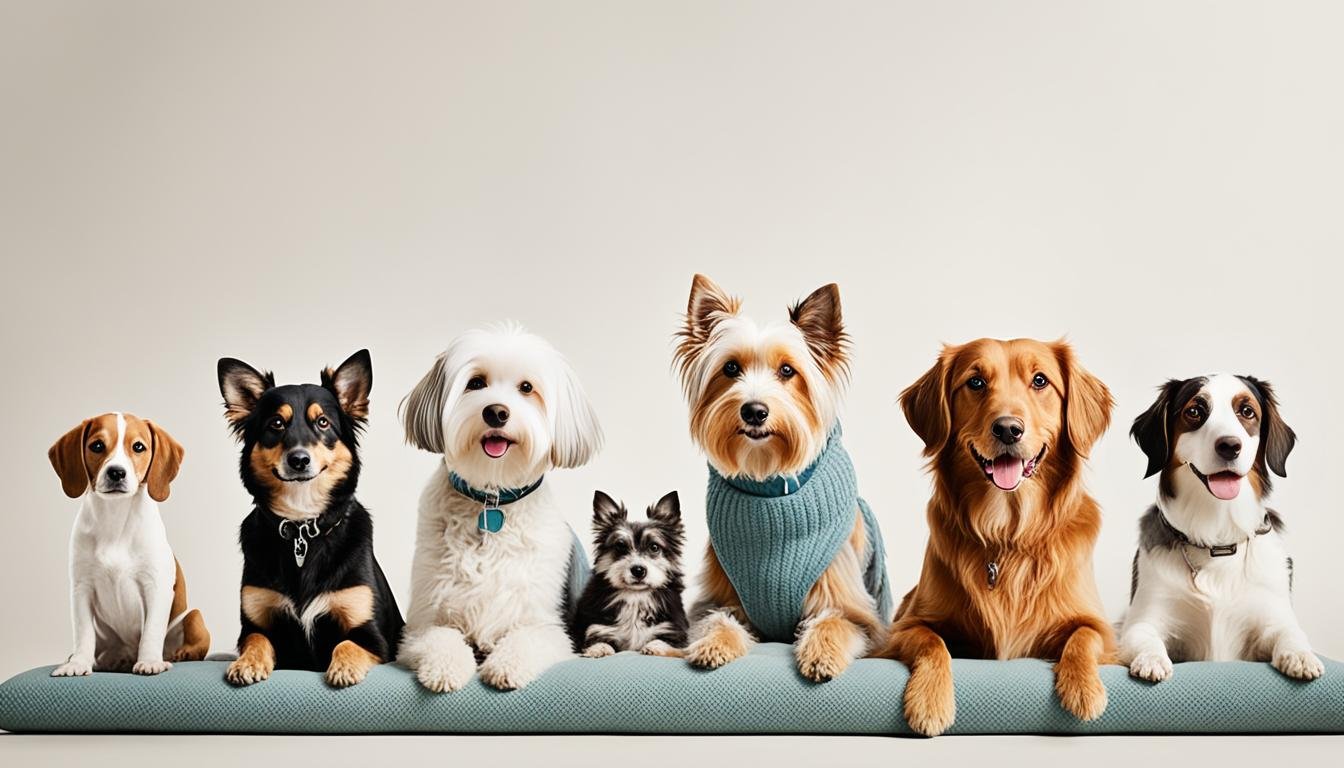Did you know that domesticated dogs are omnivores, just like humans? This means they can safely consume and digest a wide variety of foods from both the animal and plant kingdoms. In fact, the range of healthy treats for dogs is much broader than that of obligate carnivores, such as cats. As a pet parent, you may be wondering, “What human foods can I safely share with my canine companion?” This comprehensive guide will reveal the top 10 healthiest people foods that can be incorporated into your dog’s diet to support their overall well-being.
Many pet parents love sharing food with their pups. But as you consider giving dog-friendly treats during brunch, lunch, dinner, a picnic, or a BBQ, you may ask yourself, “what human foods can dogs actually eat?” Or better yet, which of the people food that dogs can eat will give them the most health benefits? This complete guide lists the healthiest people food that dogs can eat. Some of the food items listed here can also be used as food toppers for dog food that will help picky eater dogs eat.
Key Takeaways
- Domesticated dogs are omnivores, able to digest both plant and animal-based foods.
- Common canine food allergies are triggered by proteins such as beef, chicken, eggs, fish, and dairy.
- Chicken is considered the most balanced meat for dogs, being high in protein and low in fat.
- Cooked, unseasoned fish provides dogs with protein and beneficial omega-3 fatty acids.
- Cooked eggs are a good source of protein, vitamins, and minerals for dogs.
Understanding Dogs as Omnivores and Potential Allergies
Unlike wolves and cats, domesticated dogs are omnivores. In that sense, they are similar to us humans. Omnivores are naturally able to eat and digest food that comes from both animals and plants. This, however, doesn’t mean that dogs can safely eat all the types of food that people can. What this does mean is that the range of healthy treats for dogs is wider than that of obligate carnivores who are not naturally equipped to digest vegetation (sorry, cats!). Because dogs are omnivores, it means that some dogs naturally enjoy fruits and vegetables — especially the ones on this list of healthy food for dogs, and dogs can eat cooked vegetables with no pureeing needed.
Dogs Are Omnivores
The go-to treats for dogs are usually meat-based food items from the table. However, not all types of meat are safe for all dogs. Some dogs have food allergies — and the most common ones are triggered by different types of proteins. The most common canine food allergens include beef, chicken, eggs, fish (or seafood), and dairy. Note that though less common, some canines have allergies that are triggered by grains. If you would like to learn more about testing a dog for allergies (in a safe and controlled clinic environment,) consult your local veterinarian.
Common Canine Food Allergies
The go-to treats for dogs are usually meat-based food items from the table. However, not all types of meat are safe for all dogs. Some dogs have food allergies — and the most common ones are triggered by different types of proteins. The most common canine food allergens include beef, chicken, eggs, fish (or seafood), and dairy. Note that though less common, some canines have allergies that are triggered by grains. If you would like to learn more about testing a dog for allergies (in a safe and controlled clinic environment,) consult your local veterinarian.
Best Ways to Feed Your Dog the Top 10 Healthiest Foods
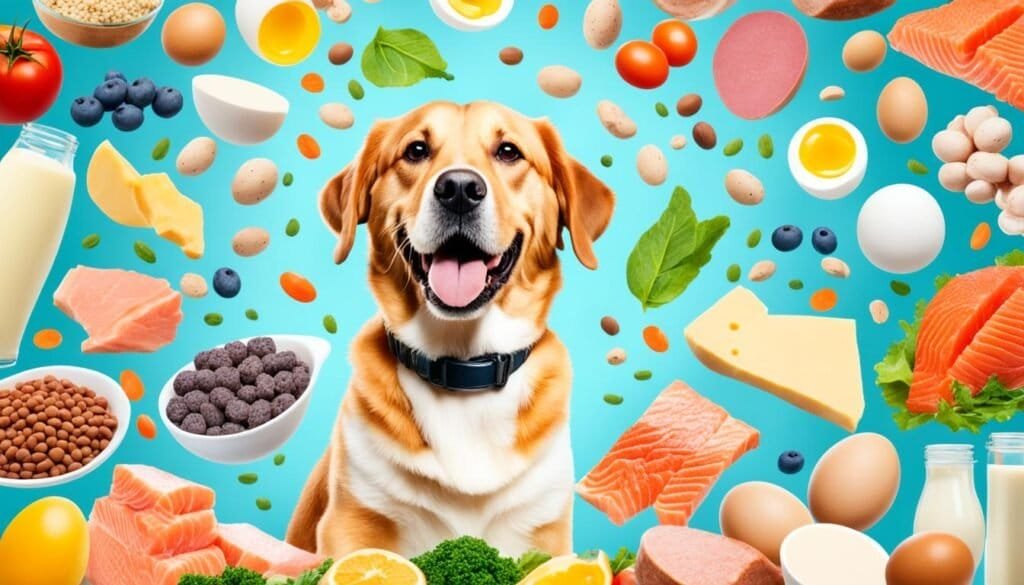
Cooked, unseasoned chicken, turkey, and beef are all great sources of protein-rich dog food for your dog. However, make sure that all the bones are removed from these meats before giving them to your dog. Doing so reduces the risk of choking. Among the three (chicken, turkey, and beef), the most balanced meat is chicken — as it is high in protein but also low in fat which makes it the healthiest type of dog-friendly protein sources to serve canines. Note that all of the above types of meat are excellent additions to your dog’s diet — but dogs also need nutrients and vitamins from other sources to stay healthy. A purely all-meat diet for dogs will not suffice.
Cooked unseasoned fish is one of the healthiest dog-friendly fish treats for dogs. Fish is a good source of protein and omega-3 for dogs. The same rule for preparing chicken and beef treats for dogs also applies to fish — make sure that all the bones are removed. This is because fish bones are choking hazards for dogs.
Whether hard boiled or scrambled, cooked eggs can be a good treat to share with your canine buddy. Eggs are a great source of dog-safe eggs, protein, vitamin D, selenium, and riboflavin.
Cooked and chopped-up pumpkin is a healthy and nutritious snack for dogs. It is a good source of fiber and beta-carotene for dogs, which can help with digestion and improve the appearance of your dog’s coat. Pumpkin is also low in calories and fat, making it a good choice for low-calorie dog food for dogs who are overweight or prone to weight gain.
Cooked green beans are a good source of fiber, vitamin C, and other nutrients that can help support your dog’s overall health. Green beans are also low in calories and fat, so they are a healthy treat for dog-safe vegetables for dogs who are overweight.
Cooked and chopped carrots are healthy treats for your dog. Cooked carrots are a great source of fiber, vitamin A, and beta-carotene for dogs. However, make sure that carrots are cooked sufficiently – raw or semi-raw carrots can be difficult for dogs to digest.
Cooked spinach is a great source of fiber, vitamin A, vitamin K, vitamin C, and potassium. Being so nutrition-packed, it’s no surprise that spinach is good for people, dogs, and even cats. Being leafy and soft, cooked spinach does not need to be chopped up like the other veggies on this list of dog-safe leafy greens.
Most dogs actually like the taste and the CRUNCH of a fresh apple. Chopped apples are an excellent source of vitamin A, vitamin C, and fiber for dogs. However, as a reminder, apples should be given in moderation. Though apples contain naturally-occurring fructose (a type of sugar which is healthier than refined sugar), this is still not good for canines in large quantities.
Many dogs LOVE bananas. Bananas are healthy treats for dogs because they are high in potassium, fiber, and magnesium. However, just like apples (and most other dog-friendly fruits), bananas need to be given in moderation because of their high natural sugar content.
Cooked oatmeal contains vitamin B, which helps maintain a healthy coat, and linoleic acid, which is a type of omega-6 fatty acid that helps to maintain the strength of dogs’ skin. Thanks to its richness in soluble fiber, oatmeal has also become an increasingly common ingredient in fiber-rich dog food.
Supplementing Your Dog’s Diet with Healthy Human Foods
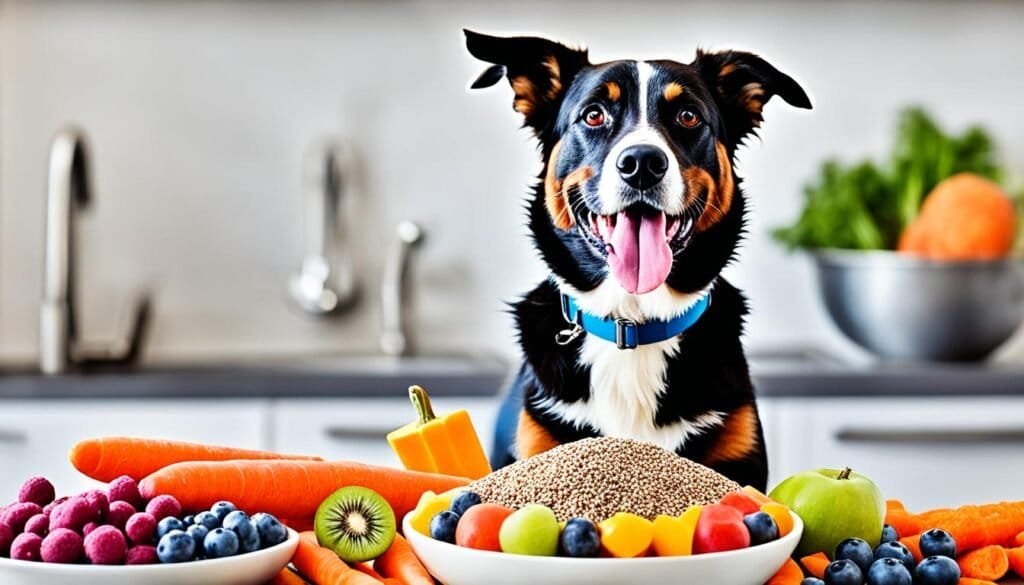
We hope you enjoyed this list of the healthiest human foods that dogs can eat. As a reminder, dogs need a balanced dog diet, and the above treats (by themselves) are not enough to provide all the dog nutrition they need. The treats on this list are not meant to replace high-quality commercially available dog food that is nutritionally complete. As always, if you have questions or concerns about your pup’s dog health or dog nutrition, we are here to help!
Importance of Moderation and Balance
When incorporating healthy dog treats into your pup’s diet, it’s crucial to maintain portion control for dogs. Even though these human foods are nutritious, they should only make up a small percentage of your dog’s overall canine dietary needs. Moderation and balance are key to ensuring your dog receives all the necessary nutrients without risk of weight gain or other health issues.
Consulting with a Veterinarian
If you have questions or concerns about your pup’s dog nutrition or dog health, we are here to help! Sploot Veterinary Care is a primary and urgent care pet clinic with multiple convenient locations in Denver, open 365 days a year, with extended vet clinic hours each day. Book an appointment online or through the Sploot Vets app. We also encourage pet parents to give us a call for urgent intake appointments.
Preparing and Serving Healthy Treats for Dogs
Safe Food Preparation Techniques
When preparing the healthiest human foods as dog-safe food prep for your dog, make sure to follow safe food preparation techniques. This includes removing all bones from meats, as cooked bones can splinter and pose a choking hazard for dogs. Additionally, it’s important to cook all meat, fish, and vegetables thoroughly without adding any seasonings, oils, or other potentially harmful ingredients.
Portion Control and Frequency
As a general guideline, treats should only make up about 10% of your dog’s overall diet, even if those treats are from the healthiest dog treats. It’s also important to monitor portion sizes and feed these treats infrequently, as even healthy foods can lead to weight gain or other issues if given to your dog in excess.
Conclusion
We hope this guide has provided you with a comprehensive understanding of the healthiest dog-friendly human foods that you can safely share with your canine companion. Remember to introduce new foods slowly, monitor your dog’s reaction, and always consult your veterinarian if you have any concerns about your dog’s dietary needs or health. By incorporating these nutritious whole foods into your dog’s balanced canine meals, you can help support their overall well-being and strengthen the bond you share.
Treats should only account for a maximum of 10% of a dog’s daily calorie intake, as the calories in treats could lead to unnecessary weight gain. Additionally, dogs that are prone to bloat may benefit from smaller meals fed more frequently. It’s important to note that fish is unlikely to cause allergic reactions in dogs and contributes to brain health and reducing inflammation.
A bad diet can be closely linked to health problems in dogs, ranging from poor digestion to heart issues. By incorporating the dog-friendly human foods outlined in this guide, you can help ensure your canine companion receives the necessary nutrients to thrive. Remember to always consult your veterinarian for personalized dog nutrition advice and to ensure your dog’s overall well-being.
FAQ
What are the healthiest human foods that dogs can eat?
The healthiest human foods for dogs include cooked, unseasoned chicken, turkey, and beef; cooked, unseasoned fish; cooked, unseasoned eggs; cooked pumpkin; cooked green beans; cooked carrots; cooked spinach; sliced apples (in moderation); bananas (in moderation); and cooked oatmeal.
Why are dogs considered omnivores?
Domesticated dogs are omnivores, similar to humans, meaning they can digest and derive nutrients from both animal and plant-based foods. This allows them to enjoy a wider range of healthy treats compared to obligate carnivores like cats.
What are the most common food allergies in dogs?
The most common canine food allergens include beef, chicken, eggs, fish (or seafood), and dairy. Some dogs may also have allergies triggered by grains. It’s important to consult a veterinarian to test for and identify any food allergies your dog may have.
How should I prepare the healthiest human foods as treats for my dog?
When preparing healthy human foods as treats, it’s important to remove all bones from meats, cook all ingredients thoroughly without added seasonings, oils, or other potentially harmful ingredients, and monitor portion sizes to ensure they make up no more than 10% of your dog’s overall diet.
Why is it important to consult a veterinarian about my dog’s dietary needs?
Consulting a veterinarian is crucial to ensure your dog’s dietary needs are being met, identify any food allergies or sensitivities, and determine the appropriate portion sizes and frequency of these healthy human food treats to maintain a balanced and nutritious diet for your canine companion.
